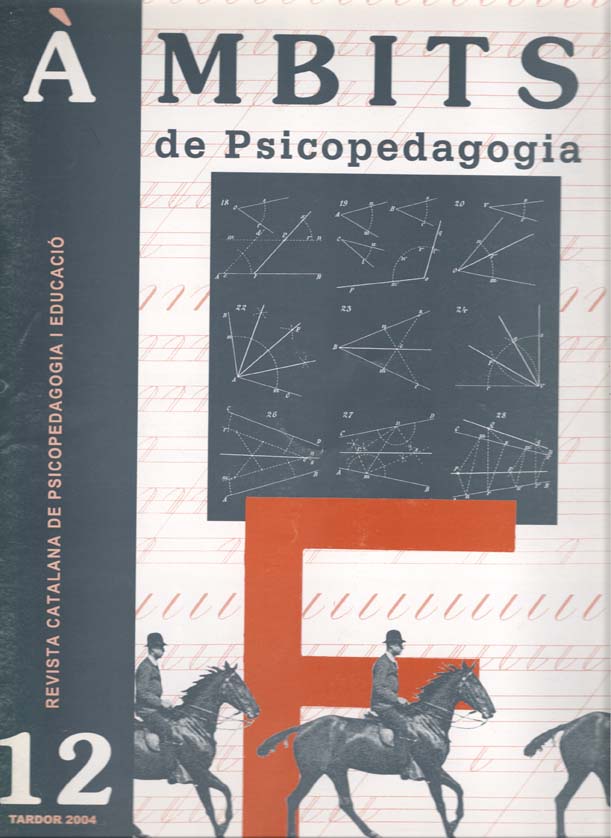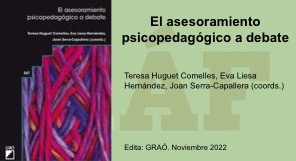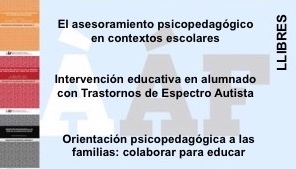El rol de las emociones en los procesos de maltrato entre alumnos
Resumen
Existe una creciente preocupación sobre la necesidad de intervenir para mejorar la convivencia en los centros. Desde esta perspectiva, uno de los aspectos a considerar son las situaciones de maltrato entre alumnos que tienen lugar en los centros educativos. El maltrato entre iguales es un fenómeno poco conocido a pesar de que las formas leves son relativamente habituales en todos los grupos clase.
Muchos autores señalan la naturaleza social de las emociones y las consecuencias de los estados emocionales en las relaciones sociales. Conocer el rol de las cogniciones y las emociones de los alumnos implicados en situaciones de maltrato es imprescindible para ajustar correctamente la intervención y tener más posibilidades de éxito.
En este artículo nos aproximamos a las cogniciones y las emociones predominantes en los procesos de maltrato entre iguales, tanto desde la perspectiva de los protagonistas principales (agresor y víctima) como de los diferentes tipos de agresión (abierta e indirecta).
Citas
BLAIR, R.J.R. (1999): Responsiveness to distress cues in the child with psychopathic tendencies. Personality and individual differences, 27, 135-145.
COLLELL, J. (2003) Adaptació del CSBS-P. Psicologia de la Salut UAB. Treball no publicat.
CRICK, N.R., CASAS, J., i MOSHER, M. (1997): Relational and overt aggression in preschool. Developmental Psychology, 33, 579-588.
CRICK, N.R., i DODGE, K. (1994): A review and reformulation of social information-processing mechanisms in children's social adjustment. Psychological Bulletin, 115, 74-101.
DEFENSOR DEL PUEBLO (2000): Violencia escolar: el maltrato entre iguales en la Educación Secundaria Obligatoria. Madrid: Publicaciones del Defensor del Pueblo.
DEPT D’ENSENYAMENT i DEPT D’INTERIOR (2001): Joventut i seguretat a Catalunya. Generalitat de Catalunya
DIAZ-AGUADO, M.J. (2003): Educación intercultural y aprendizaje cooperativo, Madrid: Ediciones Pirámide.
ESCUDÉ, C. (2003): Adaptació del CSEQ-SR. Psicologia de la Salut UAB. Treball no publicat.
JUVONEN, J. i GRAHAM, S. (Eds). (2001): Peer harassment in school. NY: The Guilford Press.
MENESINI, E. et al. (1999): Bullying and Emotions. TMR Network Project
OLWEUS, D. (1983): Low school achievement and agressive behaviour in adolescent boys. In Human development. An interactional perspective. Magnusson, D. and Allen, V. (Eds.). New York: Academic Press, pp. 353-365.
OLWEUS, D. (1991): Bully/victim problems among schoolchildren: Basic facts and effects of a school based intervention program. En D. Pepler i K. Rubin (Eds.). The development and treatment of childhood aggression (pp. 411-448). Hillsdale, NJ: Erlbaum.
OLWEUS, D. (1993): Bullying at school. What we know and what we can do. Oxford: Blackwell.
OLWEUS, D. (1994): Annotation: Bullying at school: Basic facts and effects of a school based intervention program. Journal of child psychology and psychiatry, 35, 1171-1190.
SALMIVALLI, C., LAGERSPETZ, K., BJÖRKQVIST, K., OSTERMAN, K., i KAUKIAINEN, A. (1996): Bullying as a group process: participant roles and their relations to social status within the group. Aggressive Behavior, 22, 1-15.
SALMIVALLI, C., LAPPALAINEN, M., LAGERSPETZ, K. (1998): Stability and change of behavior in connection with bullying in schools: a two-year follow-up. Aggressive Behavior, 24, 205-218.
SALMIVALLI, C., NIEMINEN, E. (2002): Proactive and reactive aggression among school bullies, victims and bully-victims. Aggressive Behavior, 28, 30-44.
SMITH, P.K. (2003). Violence in schools: The response in Europe. London: RoutledgeFalmer.
SUTTON, J., i KEOGH, E. (2000): Social competition in school: relationship with bullying, machiavellianism amb personality. British Journal of Educational psychology, 70, 443-456.
SUTTON, J., SMITH, P.K., i SWETTENHAM, J. (1999): Bullying and "theory of mind": a critique of the "social skills deficit" view of anti-social behavior. Social Development, 8, 117-127.
UNESCO (1996): La educación encierra un tesoro. Informe de la Comisión Internacional sobre la Educación para el siglo XXI, Presidida per J. Delors. Madrid: Santillana, Ediciones UNESCO.
Descargas
Publicado
Número
Sección
Licencia
Los autores/as conservan los derechos de autor y conceden a la revista el derecho de primera publicación de la obra, registrada bajo una licencia Creative Commons Reconeixement-NoComercial-Sense Obra Derivada. Esta licencia permite la descarga de las obras y que se puedan compartir con otros siempre que se reconozca la autoría, pero no permite que se modifiquen de ninguna forma ni ser utilizadas con finalidad comercial.















